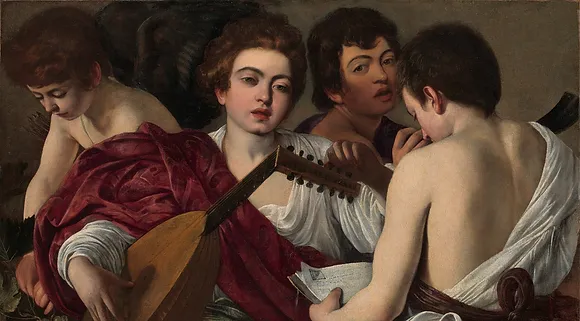Farándula Castiza: Madrid, the melting pot
Forma Antiqva
London Festival of Baroque Music
St John’s, Smith Square. 15 May 2024

For around 40 years, and through several incarnations, the London Festival of Baroque Music was one of the highlights of London’s early music scene. Formally known as the Lufthansa Festival, their lengthy sponsorship by a major German airline helped bring a wealth of non-UK musicians to London. But things have changed for most such events in these hardened times, and the latest version of the festival is a shadow of its former self. The 2024 version managed just seven concerts, only one of which was not from the UK despite their promise to showcase “the world’s finest Baroque talent, delve into a captivating programme of chamber, choral, and solo works. Under the theme of “Overtures,” this year’s festival heralds the dawn of new musical beginnings. Explore the origins of Baroque forms and experience their evolving influence, style, and instrumentation”. An imaginative but largely inaccurate description of their actual programme which included rather a lot of Clare and Robert Schumann Mendelssohn, Handel, and Bach – not exactly the “origins of Baroque forms”!
The only non-UK import was the multi-format Spanish group Forma Antiqva, here five-strong with two violins, cello, theorbo and guitar. Their programme was Farándula Castiza: Madrid, the melting pot, a fascinating peek into the musical world of 18th-century Madrid, reflecting the musical influences from different countries and genres.
The programme took the form of a three-day tour of Madrid’s streets, eavesdropping on the various selections of music that could be heard in the theatre, opera and on the streets, notably with the fandango dances, and extracts from several instrumental pieces. Each of the daily sessions was made up of extracts from music by various composers, generally segued to form a four or five-movement piece. Some pieces were divided across the programme, for example, José de Nebra’s Obertura de Iphigenia en Tracia: the Allegro was heard at the start with a Minué and Allegro near the end. Most of the composers were probably unknown to the London audience, the one familiar name being Boccherini who was represented here by a Minuetto rather than his well-known Fandango. But we did hear Fandangos from Acero and Conforto and the distinctive Spanish rhythm was present in several other pieces, including the encore.
Lacking their usual harpsichord player, Forma Antiqva’s line-up was Jorge Jiménez & Daniel Pinteño, violin, Ruth Verona, violoncello, Daniel Zapico, theorbo, and Pablo Zapico, Baroque guitar. The playing was exemplary, as was their stage presence and interaction with the audience. What the music often lacked in harmonic interest, it certainly gained in rhythmic intensity, helped by Forma Antiqva’s very expressive and flexible rhythmic freedom.
A Q&A with Forma Antiqva from Cambridge Early Music, with more information on this programme, can be read here. The full programme is below.
José de Nebra Obertura de Iphigenia en Tracia – Allegro
Bernardo Álvarez Acero Fandango
José Castel Sinfonía No. 3 – Allegro
Nicolás Conforto Sinfonía de La Nitteti – Andante alla francese
Vicente Baset Sinfonia a più stromenti Bas-3 – Allegro assay; Adagio; Minuete
Luigi Boccherini Tempo di Minuetto (Op VI)
Juan Bautista Mele Sinfonía de Angelica e Medoro – Andante
Nicolás Conforto Fandango
Vicente Baset Apertura a più stromenti Bas-7 – Allegro assay; Andante moderato; Presto
Santiago de Murcia Cumbees
Nicolás Conforto Sinfonía de Siroe – Con ira; Andante alla francese; Allegro
Francisco Corselli Obertura de La cautela en la amistad – Andante
José de Nebra Obertura de Iphigenia en Tracia – Minué; Allegro
José Castel Sinfonía no 3 – Minuetto
Vicente Baset Apertura a più stromenti Bas-5 – Allegro assay; Adagio; Allegro
